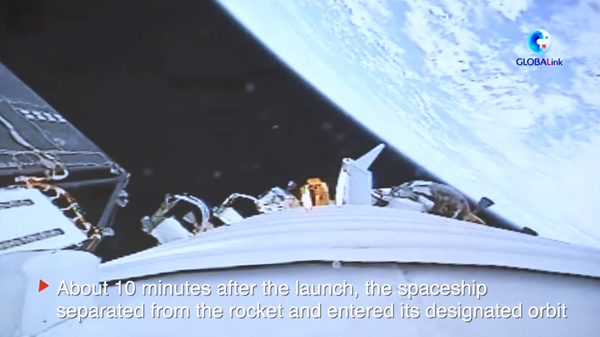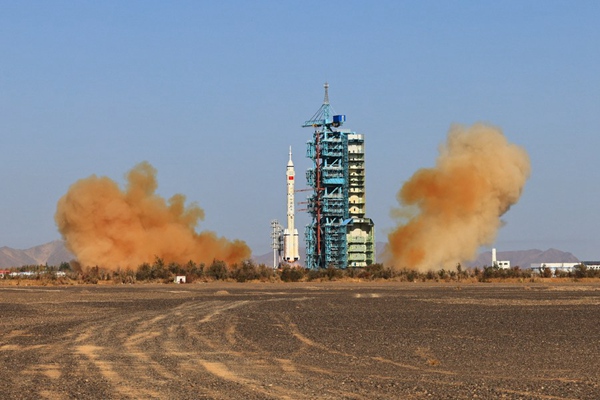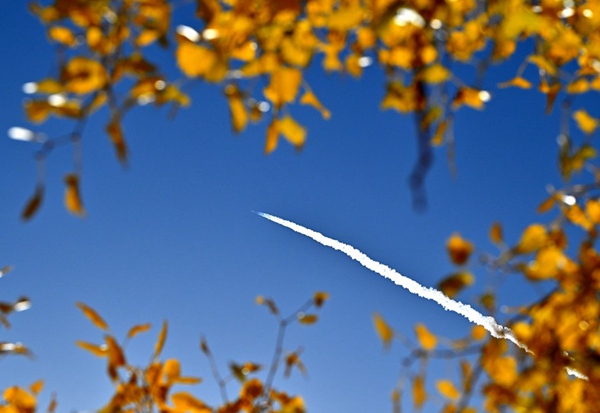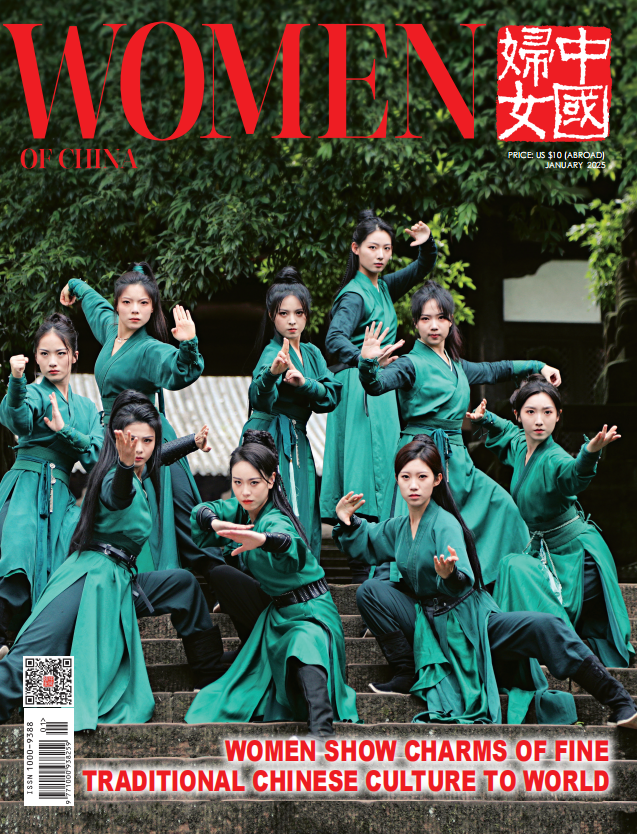China Launches Shenzhou-17 Manned Spaceship for New Challenging Work in Space Station
 |
| Click the photo and watch the video. |
* The Shenzhou-17 crew has the youngest lineup since the construction of China's Tiangong space station started.
* The spaceship carries a batch of biotechnology experiment samples. Dozens of medical experiments will also be carried out during the mission.
* The Shenzhou-17 astronauts will do extravehicular experimental maintenance for the first time, which is a very challenging task.
JIUQUAN, Oct. 26 (Xinhua) — China on Thursday launched the Shenzhou-17 manned spaceship, and the three astronauts aboard will stay in orbit for about six months on a space station mission.
The spaceship, atop a Long March-2F carrier rocket, blasted off at 11:14 a.m. Thursday (Beijing Time) from the Jiuquan Satellite Launch Center in northwest China, according to the China Manned Space Agency (CMSA).
About 10 minutes after the launch, the Shenzhou-17 spaceship separated from the rocket and entered its designated orbit. The crew members, consisting of Tang Hongbo, Tang Shengjie and Jiang Xinlin, are in good shape and the launch is a complete success, the CMSA said.
 |
| The Shenzhou-17 manned spaceship, atop a Long March-2F carrier rocket, blasts off from the Jiuquan Satellite Launch Center in northwest China on Oct. 26, 2023.[Xinhua/Li Gang] |
Experiments
The spacecraft carries a batch of biotechnology experiment samples for space protein molecular assembly and application research, including proteins, polypeptides, nucleic acids, biomaterials and medicines.
The microgravity environment in space provides a relatively uniform and stable environment for protein crystal growth, allowing scientists to determine the biological functions of protein molecules more accurately.
The experiments will help researchers study the effects of the microgravity environment and radiation on molecular structure, biological function, drug efficacy and pharmacology, guiding the design and development of molecular drugs.
The astronauts will also work on the research and development of biodegradable bionic bones, and their work will be of great significance to bionic biotechnology.
The astronauts will transfer the experiment samples to the space station and carry out planned scientific experiments.
Dozens of medical experiments will also be carried out during the mission, according to the China Astronaut Research and Training Center.
The experiments take weightlessness and radiation into consideration. They will study the impacts of long-term missions in space on the health and behaviors of astronauts, and explore advanced health care technologies, the center said.
More experiments will be conducted based on systematically obtained astronaut data and samples, aiming to deepen research into the laws and mechanisms of human adaptation to space.
The mission will also seek to develop advanced technologies for long-term space residence health assessment, improve the country's self-developed portable acupoint stimulation device, and explore new technologies for efficient human-machine collaboration.
 |
| The Shenzhou-17 manned spaceship, atop a Long March-2F carrier rocket, blasts off from the Jiuquan Satellite Launch Center in northwest China on Oct. 26, 2023.[Xinhua/Ren Junchuan] |
New Challenges
The Shenzhou-17 crew has the youngest lineup since the construction of China's Tiangong space station started.
Tang Hongbo, born in 1975, is the mission commander and a veteran astronaut once launched into orbit on the Shenzhou-12 mission in June 2021. Tang Shengjie, born in 1989, is a new face and also the youngest astronaut to enter China's space station. Jiang Xinlin, born in 1988, is also a newcomer to space.
They will perform various in-orbit space science and application payload tests and experiments, Lin Xiqiang, deputy director of the CMSA, announced at a press conference on Wednesday.
They will carry out extravehicular activities, install extravehicular payloads and conduct space station maintenance and other tasks, Lin said.
The Shenzhou-17 astronauts will do extravehicular experimental maintenance for the first time, which is a very challenging task, Lin added.
With space debris increasing, their impact on long-term operating spacecraft is inevitable, Lin said. "Through preliminary inspections, we have found that the solar wings of the space station had been hit by tiny space particles several times, causing minor damages."
"Of course, we already took this into consideration in the design stage. At present, all functionality and performance indicators of the space station meet requirements," he added.
Chinese astronauts Tang Hongbo (R), Tang Shengjie (C) and Jiang Xinlin attend a see-off ceremony at the Jiuquan Satellite Launch Center in northwest China on Oct. 26, 2023. (Xinhua/Li Zhipeng)
The astronauts will also continue to assess the functioning and performance of the space station and test the coordination and compatibility of ground support centers in performing space station operation and management tasks, to further enhance the operating efficiency and fault correction capability of the space station, he said.
The space station's environmental control and life support system has been operating in orbit for approximately 900 consecutive days. The system's regenerative technology has significantly reduced the need for ground supplies, and it is capable of saving up to six tonnes of expendable materials each year with three astronauts in orbit.
The Shenzhou-17 crew will rotate with the Shenzhou-16 crew, and the six astronauts across the two crews will work and live together in orbit for a period of time. The system's processing capacity will be increased to meet the demands of six people. Its ability to support multiple modules and spacecraft will also be tested during the rotation. Enditem
(Zhou Zhou, Hu Tao, Wang Chenxi, Yang Chunxue, Yuan Quan, Zhang Dan, Li Guoli, and Mi Siyuan also contributed to the story)
(Video editors: Wu Yao, Hui Peipei)
(Source: Xinhua)
Please understand that womenofchina.cn,a non-profit, information-communication website, cannot reach every writer before using articles and images. For copyright issues, please contact us by emailing: website@womenofchina.cn. The articles published and opinions expressed on this website represent the opinions of writers and are not necessarily shared by womenofchina.cn.






.jpg)

 WeChat
WeChat Weibo
Weibo 京公网安备 11010102004314号
京公网安备 11010102004314号